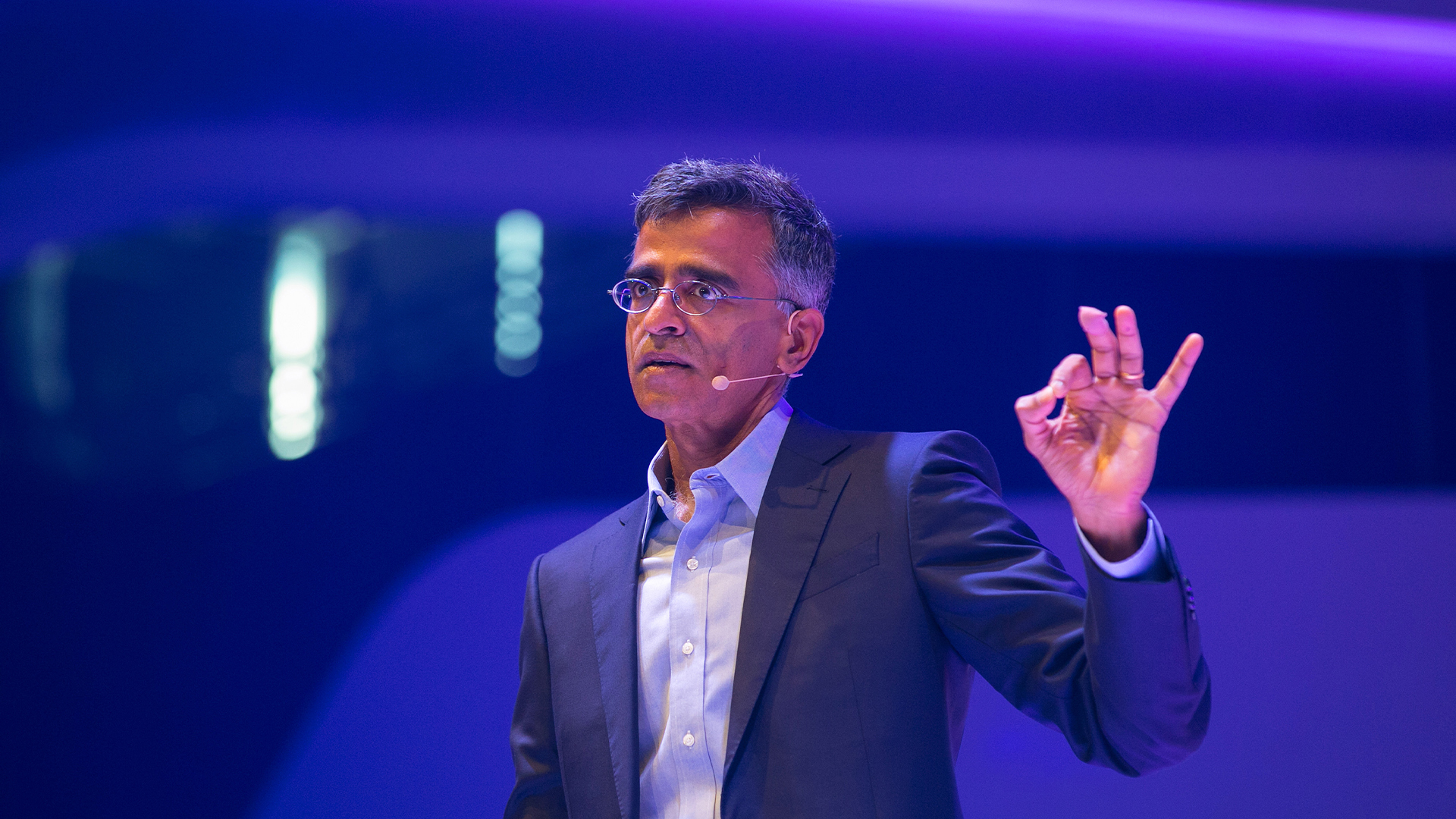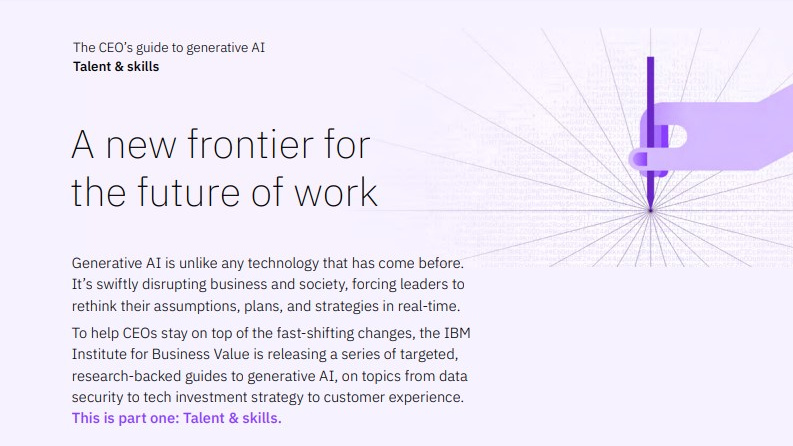Mayor of London hails capital's AI firms as he reveals smart city roadmap
Sadiq Khan outlines plans to use more data and urges startups to solve social challenges

London houses twice the total number of AI companies of Paris and Berlin combined, according to a new report launched on the eve of London Tech Week.
The UK's capital is home to 758 firms for which AI is a central part of their business models, a survey commissioned by the Mayor of London has discovered.
These companies span 30 industries, with focuses on insurance, finance and law, according to AI advice platform CognitionX, which compiled the London: The AI Growth Capital of Europe report. Investment in London's AI businesses grew by 50% last year to surpass 200 million, including a 48 million funding round for smartphone health app Babylon Health and a 27 million Series A round for authentication tool Callsign.
Meanwhile, 32% of the firms having at least one founder from a minority ethnic background, and 25% with at least one female founder.
Speaking at the launch of London Tech Week, Mayor of London Sadiq Khan said: "There are few areas of innovation that have the power to define our future economy and society more than artificial intelligence. As mayor, it is my goal to ensure both that London is at the forefront of developing and capitalising on these new technologies, and that all Londoners can benefit from the opportunities that they create.
"The research describes a city with a rich technology ecosystem, a strong pipeline of AI innovation and an academic and investment base set up for the long term."
Khan hopes to capitalise on London's AI knowledge to turn the capital into a smart city, a goal he announced last year.
Sign up today and you will receive a free copy of our Future Focus 2025 report - the leading guidance on AI, cybersecurity and other IT challenges as per 700+ senior executives
Today he outlined a roadmap featuring more than 20 initiatives to achieve that aim, including proposals to bring full fibre broadband to all new homes, working with TfL and councils to roll out 4G more widely across public buildings, and adding smart sensors to public infrastructure like lamp posts, as well as supporting bids to test 5G.
The use of open data at TfL and City Hall to build apps for the public is set to continue, with Khan allocating 365,000 to improve data-sharing among public services.
"We are really looking forward to working with startups and other partners to ensure Londoners have good access to homes and can easily travel around the city," Lilli Matson, director of transport strategy at TfL, said. "This is central to quickly developing innovative solutions to deliver more homes and offer better options to encourage more journeys to be made by walking, cycling and public transport."
The mayor also plans to invest 365,000 to improve data-sharing among public services and proposes to draw up a pan-London cybersecurity strategy to safeguard people's personal information, a plan that would bring together bodies including the London Digital Security Centre and the London Cyber Innovation Centre.
London's chief digital officer, Theo Blackwell, said: "We will strike a new deal with citizens on use of their data so when it is appropriate to share data, it is done in a trusted, safe way and for public benefit."
Khan will also launch the Civic Innovation Challenge, first announced in December, to grant startups 15,000 to test ideas that are designed to tackle social challenges like inequality, climate change and the capital's ageing population.
"As one of the world's leading technology hubs, we need to be bold and think big, to experiment and try things out that have not been done elsewhere," he said. "I see London's future as a global 'test-bed city' for civic innovation, where the best ideas are developed, amplified and scaled."
-
 Microsoft unveils Maia 200 accelerator, claiming better performance per dollar than Amazon and Google
Microsoft unveils Maia 200 accelerator, claiming better performance per dollar than Amazon and GoogleNews The launch of Microsoft’s second-generation silicon solidifies its mission to scale AI workloads and directly control more of its infrastructure
-
 Infosys expands Swiss footprint with new Zurich office
Infosys expands Swiss footprint with new Zurich officeNews The firm has relocated its Swiss headquarters to support partners delivering AI-led digital transformation
-
 Channel Focus: All you need to know about Snowflake's partner program
Channel Focus: All you need to know about Snowflake's partner programSnowflake wants partners to help with its mission to make 'the AI era' easy, efficient, and trusted...
-
 The CEO's guide to generative AI: A new frontier for the future of work
The CEO's guide to generative AI: A new frontier for the future of workWhitepaper Make people, not technology, central to your generative AI strategy
-
 Inside IBM’s plans to bring generative AI to Wimbledon
Inside IBM’s plans to bring generative AI to WimbledonNews Match-goers at Wimbledon this year will be armed with a range of generative AI features to enhance their experience
-
 Quantexa becomes UK's first unicorn of 2023 with $129 million investment
Quantexa becomes UK's first unicorn of 2023 with $129 million investmentNews The news of Quantexa’s unicorn status comes amid a period of strained conditions for high-growth tech firms
-
 Inside Mozilla’s mission to champion 'trustworthy' AI development
Inside Mozilla’s mission to champion 'trustworthy' AI developmentNews Amid a rapid acceleration in generative AI, Mozilla has launched a new startup to champion trust, transparency, and responsibility
-
 Gartner: Data analytics teams failing to deliver benefits despite rising budgets
Gartner: Data analytics teams failing to deliver benefits despite rising budgetsNews Human-related challenges, such as lack of talent, were highlighted as key impediments to data strategy success
-
 Machine learning vs data science: What’s the difference?
Machine learning vs data science: What’s the difference?In-depth Both machine learning and data science are fields that extract insights from data, but the methods vary significantly
-
 Solve global challenges with machine learning
Solve global challenges with machine learningWhitepaper Tackling our world's hardest problems with ML